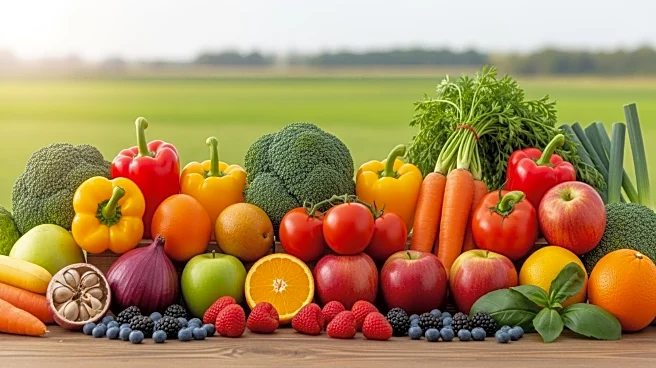What's Happening?
The U.S. Department of State, in collaboration with the African Union and the Food and Agriculture Organization, has launched the Vision for Adapted Crops and Soil (VACS) initiative. This program aims to enhance food system resilience across Africa by
identifying crops with high potential in changing climates. The initiative focuses on leveraging the genetic diversity of under-utilized crops such as cowpea, teff, and okra, which have not been prioritized by agricultural policies. By incorporating these climate-adapted species into regional farming systems, the initiative seeks to optimize crop distributions while preserving Indigenous knowledge.
Why It's Important?
This initiative is significant as it addresses the challenges posed by climate change to agriculture, particularly in Africa. By promoting the cultivation of climate-resilient crops, the program aims to ensure food security and support local economies. The focus on under-utilized crops could lead to the development of new markets and value chains, benefiting smallholder farmers and preserving cultural heritage. The initiative also highlights the importance of integrating Indigenous knowledge into modern agricultural practices, which is crucial for building resilience against climate variability.
What's Next?
The VACS initiative is expected to lead to the scaling-up of production for climate-adapted crops, potentially transforming agricultural practices in Africa. This could result in increased collaboration between governments, research institutions, and local communities to further develop resilient food systems. The initiative may also inspire similar programs in other regions facing climate-related agricultural challenges, fostering global cooperation in sustainable farming practices.
Beyond the Headlines
The initiative underscores the ethical dimension of preserving Indigenous knowledge and cultural heritage in the face of climate change. It raises questions about the balance between modern agricultural innovations and traditional practices, and the role of policy in supporting diverse farming systems. The long-term impact could include shifts in global agricultural policies to prioritize sustainability and cultural preservation.
















